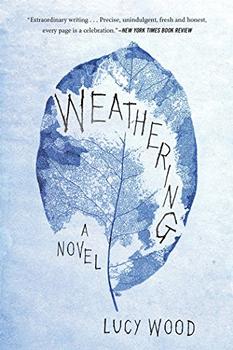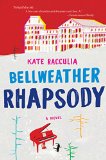Summary | Excerpt | Reviews | Beyond the book | Read-Alikes | Genres & Themes | Author Bio

The acclaimed author of The Borrower returns with a dazzlingly original, mordantly witty novel about the secrets of an old-money family and their turn-of-the-century estate, Laurelfield.
Meet the Devohrs: Zee, a Marxist literary scholar who detests her parents' wealth but nevertheless finds herself living in their carriage house; Gracie, her mother, who claims she can tell your lot in life by looking at your teeth; and Bruce, her step-father, stockpiling supplies for the Y2K apocalypse and perpetually late for his tee time. Then there's Violet Devohr, Zee's great-grandmother, who they say took her own life somewhere in the vast house, and whose massive oil portrait still hangs in the dining room.
Violet's portrait was known to terrify the artists who resided at the house from the 1920s to the 1950s, when it served as the Laurelfield Arts Colony - and this is exactly the period Zee's husband, Doug, is interested in. An out-of-work academic whose only hope of a future position is securing a book deal, Doug is stalled on his biography of the poet Edwin Parfitt, once in residence at the colony. All he needs to get the book back on track - besides some motivation and self-esteem - is access to the colony records, rotting away in the attic for decades. But when Doug begins to poke around where he shouldn't, he finds Gracie guards the files with a strange ferocity, raising questions about what she might be hiding. The secrets of the hundred-year house would turn everything Doug and Zee think they know about her family on its head?that is, if they were to ever uncover them.
In this brilliantly conceived, ambitious, and deeply rewarding novel, Rebecca Makkai unfolds a generational saga in reverse, leading the reader back in time on a literary scavenger hunt as we seek to uncover the truth about these strange people and this mysterious house. With intelligence and humor, a daring narrative approach, and a lovingly satirical voice, Rebecca Makkai has crafted an unforgettable novel about family, fate and the incredible surprises life can offer.
The novel's unique structure and its vibrant characters make for active, exciting reading. Questions raised in one section are answered in others, creating a reading experience that might have you flipping back and forth through the pages. The Hundred-Year House is a puzzle, a plunge into a world of fascinating characters, and an examination of human relationships. It is not to be missed...continued
Full Review
 (600 words)
(600 words)
(Reviewed by Sarah Sacha Dollacker).
Rebecca Makkai makes clear in her dedication that although nothing in The Hundred-Year House is based on her stay at Yaddo, a creative artists' retreat in Saratoga, New York, the book is indebted to the time and space they gave her to write it. Like Laurelfield, it was once a privately held estate.
 Yaddo was founded in 1900 by Spencer Trask and his wife, Katrina, a poet. Their four children died in childhood, so the couple bequeathed the estate to artists to be used as a place to "nurture the creative process by providing an opportunity for artists to work without interruption in a supportive environment." When the Trasks purchased the property in 1881, they named it "Yaddo" at their young daughter's suggestion. Even before Yaddo ...
Yaddo was founded in 1900 by Spencer Trask and his wife, Katrina, a poet. Their four children died in childhood, so the couple bequeathed the estate to artists to be used as a place to "nurture the creative process by providing an opportunity for artists to work without interruption in a supportive environment." When the Trasks purchased the property in 1881, they named it "Yaddo" at their young daughter's suggestion. Even before Yaddo ...

If you liked The Hundred-Year House, try these:

by Lucy Wood
Published 2017
A dreamlike tale tale that explores big topics - belonging, mortality, love - though the lives of three women (one who is dead), and old house, and a river....

by Kate Racculia
Published 2015
A high school music festival goes awry when a young prodigy disappears from a hotel room that was the site of a famous murder/suicide fifteen years earlier.